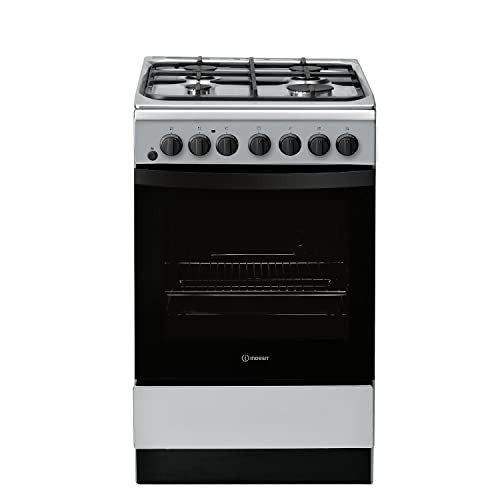Five People You Need To Know In The Sales Ovens Industry

The Comprehensive Guide to Sales Ovens: Understanding Their Importance, Types, and Best Practices
Sales ovens, a classification of commercial cooking equipment, are essential gamers in the cooking and foodservice industry. These appliances, developed to prepare food in large amounts efficiently, are vital in restaurants, catering services, and other food establishments. This short article digs into the significance of sales ovens, their types, and best practices for picking and using them successfully.
What Are Sales Ovens?
Sales ovens, broadly specified, are cooking devices used primarily in industrial kitchen areas to prepare, bake, or heat various food items at scale. Their design allows them to deal with higher volume cooking compared to standard domestic ovens. Given the nature of food service, sales ovens often incorporate innovative technologies that promote speed, efficiency, and even cooking.
Value of Sales Ovens in the Food Industry
Sales ovens play a critical role in food production for many factors:
- Efficiency: Sales ovens can cook food quicker and equally than traditional ovens, allowing chefs to prepare meals in less time.
- Consistency: With accurate temperature level controls, sales ovens ensure that the food is cooked equally every time, preserving quality throughout thousands of servings.
- Versatility: Many sales ovens can handle various cooking approaches consisting of baking, roasting, broiling, and even steaming, making them appropriate for varied menus.
- Energy Savings: Modern sales ovens are often designed to be energy-efficient, minimizing operational expenses for organizations.
Types of Sales Ovens
The market provides a variety of sales ovens, each fit for particular cooking needs and types of food. Here are the most typical types:
| Type of Oven | Description | Best For |
|---|---|---|
| Convection Ovens | Utilize a fan to distribute hot air, guaranteeing even cooking. | Baking and roasting products. |
| Combi-Ovens | A mix of convection and steam cooking, supplying versatility in cooking methods. | Varied menus requiring steaming and baking. |
| Conveyor Ovens | Utilize a moving belt to continually cook food, suitable for high-volume operations. | Quick food and pizza. |
| Deck Ovens | Feature separate compartments (decks) that can be independently controlled, offering high efficiency. | Artisan bread and pastries. |
| Rotisserie Ovens | Designed to slowly roast meat on a spit, supplying tender and juicy results. | Roasted meats. |
Choosing the Right Sales Oven
Picking the appropriate sales oven for a particular organization requires consideration of a number of factors:
- Volume Needs: Assess the volume of food that needs to be prepared. Higher volume indicates going with conveyor or combi-ovens.
- Menu Diversity: Understanding what type of dishes will be prepared can assist the selection process. For example, a pastry shop may need a deck oven, while a restaurant might take advantage of a stove.
- Space Availability: Measure kitchen area to ensure the ovens fit effectively and have actually required ventilation.
- Spending plan: Commercial ovens can differ substantially in cost, so develop a spending plan that thinks about long-lasting functional cost savings.
- Energy Efficiency: Opt for ovens that have energy rankings to keep utility costs workable.
Best Practices for Using Sales Ovens
Effectively running a sales oven includes more than simple usage. Here are some best practices to keep in mind:
- Regular Maintenance: Schedule regular maintenance to clean and check the performance of the oven. This guarantees longevity and performance.
- Preheating: Always preheat the oven to the wanted temperature before placing food inside for consistent cooking outcomes.
- Use Thermometers: For accuracy, use an oven thermometer to guarantee that temperature levels remain consistent, especially for baking.
- Follow Cooking Times: Adhere to suggested cooking times based upon the type of food being prepared. Changes might be needed for different ovens.
- Prevent Overcrowding: Ensure adequate area around food products in the oven to permit appropriate air circulation.
The Future of Sales Ovens
As innovation advances, so do the abilities of sales ovens. Developments such as smart innovation, energy-efficient designs, and enhanced security features are becoming more popular. These developments promise to boost cooking effectiveness while likewise fulfilling sustainability objectives.
Frequently Asked Questions about Sales Ovens
Q1: How do I clean my sales oven?
A: Regular cleansing includes eliminating any food particles, wiping down surfaces with non-corrosive cleaners, and following particular cleaning suggestions from the manufacturer.
Q2: What's the lifespan of a commercial oven?
A: Typically, a well-kept commercial oven can last anywhere from 10 to 20 years, depending on use and maintenance.
Q3: Can sales ovens be utilized for baking?
A: Yes, numerous kinds of sales ovens, specifically convection and deck ovens, are specifically created for baking a variety of products.
Q4: Are there energy-efficient options for sales ovens?
A: Yes, several makers use energy-efficient designs that decrease energy consumption without sacrificing performance.
Q5: How often should I conduct maintenance on my sales oven?
A: It's suggested to conduct regular maintenance checks every month or quarter, depending upon usage levels. Furthermore, Ovens & Hobs ought to take place a minimum of yearly.
Sales ovens are essential in the modern-day cooking landscape. Their ability to prepare large amounts of food effectively makes them necessary for dining establishments, catering services, and other food establishments. By comprehending the numerous types, choosing the right oven, and sticking to best practices, food service companies can optimize their cooking procedures, improve their offerings, and ultimately thrill their consumers with exceptional cooking productions.

